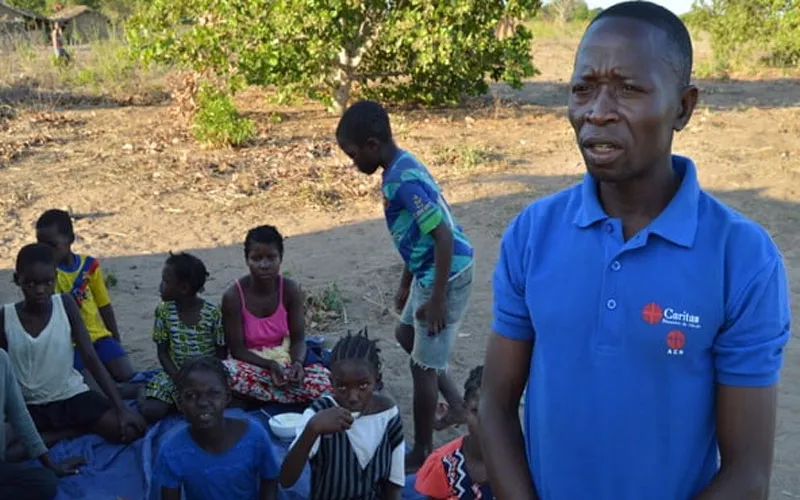In Mozambique's Catholic Diocese of Nacala, ACN has established a feeding and psychosocial program for displaced people from Cabo Delgado.
In a December 1 report, ACN United States reported that nearly 22,000 IDPs, mainly women and children, have sought refuge in Nacala.
“The parish of Itoculo (in Nacala) welcomed more than a hundred people, 117 to be precise, almost half of them children,” ACN reports, and adds, “They are at the center of an initiative backed by Aid to the Church in Need to provide psychosocial support to enable the IDPs to face the challenges they face as victims of war with greater resilience.”
Every day, next to the houses, officials of Caritas Nacala who are managing the ACN project “invent” a classroom and a cafeteria “with heaven as their roof and the ground and grass as their floor” for the IDPs.
ACN reports that for food, the children have gruel, a mixture of corn, milk, eggshell, and anything else they can put together. In Nacala, the charity foundation reports the dire situation of the IDPs saying, “Hunger is a cruel reality.”
(Story continues below)
“Unfortunately, this is a time of widespread famine due to low farm output in 2020 and the lack of rainfall in 2021,” Bishop Alberto Vera of Nacala told ACN.
Bishop Vera told the charity foundation that 85 percent of the population has been left “in a situation of extreme vulnerability,” which has increased “social pressure even more.”
The project managed by Caritas Nacala, funded by ACN donors, helps 117 displaced people from Cabo Delgado with seven local partners supported by three missionaries.
Fr. Mário João, a Portuguese Priest on mission in Mozambique who is involved in the project says in the December 1 ACN report that the project is alleviating the suffering of the IDPs.
“In Itoculo, you can now hear the cheerful voices of children, especially at lunchtime. For these displaced people, the present is a time of great uncertainty. Many want to go back to their villages of origin and instead are left waiting. We just have to keep up with the news of what is happening up north. If the attacks end, it will be time to go home, but everything suggests that peace is still far away,” Fr. Mário says.
Agnes Aineah is a Kenyan journalist with a background in digital and newspaper reporting. She holds a Master of Arts in Digital Journalism from the Aga Khan University, Graduate School of Media and Communications and a Bachelor's Degree in Linguistics, Media and Communications from Kenya's Moi University. Agnes currently serves as a journalist for ACI Africa.








